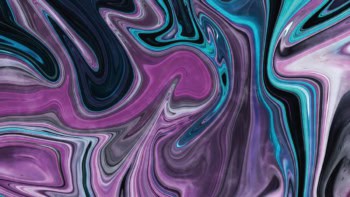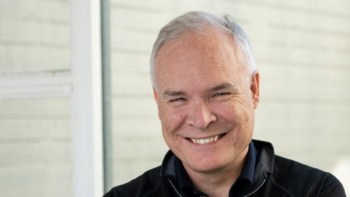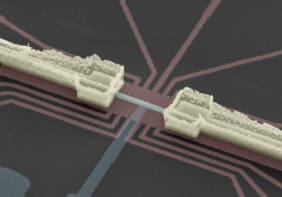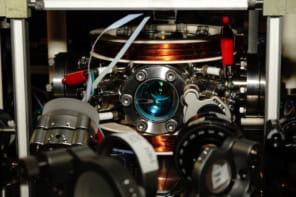This month’s episode of the Physics World Stories podcast looks in depth at the science behind the 2022 Nobel Prize for Physics and the technologies that are emerging as a result. Alain Aspect, John Clauser and Anton Zeilinger shared this year’s award “for their experiments with entangled photons, establishing the violation of Bell’s inequalities and pioneering quantum information science”.
The first guest is Maksym Sich, co-founder and chief executive of Aegiq, a quantum-photonics spin-out company working on the development of secure quantum data communications and quantum photonics. Aegiq, which received a business start-up award from the Institute of Physics in 2021, has developed a high-performance source of indistinguishable single photons on demand.
“The one thing that is harder than actually doing quantum mechanics is describing it verbally,” says Sich. The quantum entrepreneur gives it a go anyway and neatly explains how quantum technologies emerging today relate to the pioneering experiments of Aspect, Clauser and Zeilinger. Their work helped to demonstrate that entanglement is indeed a quantum phenomenon rather than a classical one.
Later in the episode you will hear from Oscar Kennedy, a quantum engineer from Oxford Quantum Circuits (OQC), a start-up based in Reading, UK. OQC has developed a chip based on superconducting quantum bits “qubits”, which is billed as the UK’s most advanced quantum computer.
Bohr, Einstein and Bell: what the 2022 Nobel Prize for Physics tells us about quantum mechanics
In addition to explaining his company’s technology innovations, Kennedy also speaks about what it’s like day-to-day working in quantum computing. Spoiler alert: he loves it. “OQC are hiring all sorts of roles that transcend quantum information because we’re building a world-class company. So if anyone wants to join the quantum revolution, we’re always looking,” he says.
You can discover much more about some of the themes in this episode by visiting the quantum section of the Physics World website, where you can also sign up to our Quantum bimonthly newsletter.




